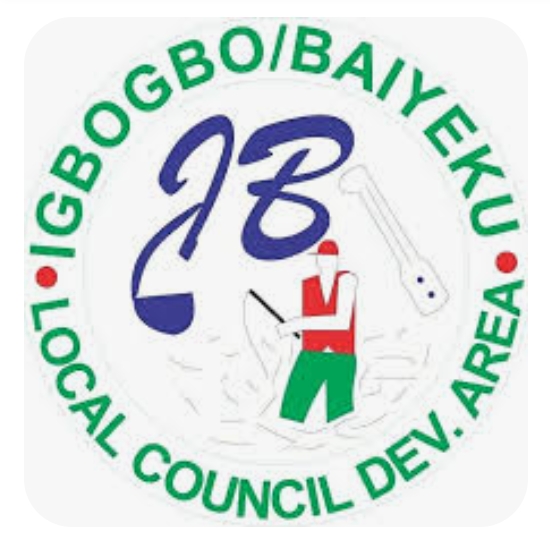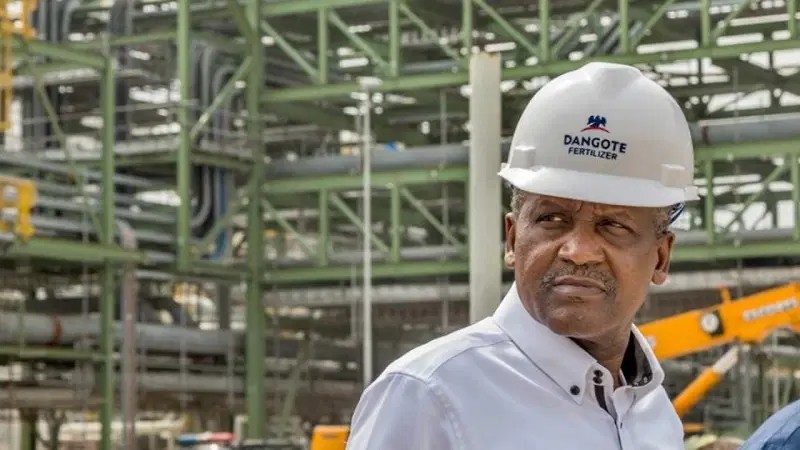
THE IMPACT OF LOCAL COUNCIL DEVELOPMENT AREA ON COMMUNITY DEVELOPMENT, A CASE STUDY OF IGBOGBO/BAIYEKU LCDA.
THE IMPACT OF LOCAL COUNCIL DEVELOPMENT AREA ON COMMUNITY DEVELOPMENT, A CASE
STUDY OF IGBOGBO/BAIYEKU LCDA.
BY: FASHINA MOBOLAJI SHAKIRU
ABSTRACT
This study examined the impact of the local council development area (LCDA) on community development in Lagos State, Southwest Nigeria. The study concentrated on Igbogbo/Baiyeku LCDA.As a case study, Igbogbo/Baiyeku is one of the 6 LCDAs in Ikorodu local government. This study consulted journals and interviews to arrive at a logical conclusion and also profound possible solutions faced by the LCDA.The study revealed that the budget allocation sent by the government to the responsible departments in the local government is not always received as and when due for the effective implementation of community development projects. It was concluded that a higher monitoring authority should be set aside to monitor and supervise the existence of checks and balances between the regulations of the local government areas.
INTRODUCTION
There is a widespread consensus among development practitioners, government officials, and foreign donors that local government plays an increasingly proactive role in participatory community development. The World Development Report (2003) strongly supports devolution for making service delivery work for the poor. Recently a number of scholarly books, articles, and panels at conferences have dealt with the growing importance of local government as providers of local services, valuable partners in the community development arena, and a successful laboratory for local democracy (Sisk et al., 2001; Forbrig, 2011; Rondinelli, 2006).At the international level, local governments are improving their performance by playing a very significant role in providing better cooperation together with the people at the local level concerning community development. It shows that policymakers are committed to a high level of community participation for the community development. By doing so, this would work towards allowing local governments to retain strong state power (Jessop 2004; Newman et al. 2004).Local communities should involve and help each other to acquire new approaches in terms of community development. In other words, community development offers a practice that is a part of a process of social change based on the sharing of integrity, skills, knowledge, and experience. Green and Haines (2012) state community development as a planned effort to build assets that increase the capacity of residents to improve their quality of life. The authors added that these assets may include several forms of community capital, such as physical, human, social, financial, political, and cultural. Community development fundamentally involves a series of actions and decisions that improve the situation of a community, not just economically, but as a strong, functioning community.(Cavaye, 2003). Cavaye argues that through action, participation, and contact, a community becomes more vital, and this relies on strong networks, organisational ability, skills, leadership, and motivation of the local government. It shows that the local government plays a significant role in bringing the best out of the community it serves in order to achieve productivity and sustainability.Community development’s prior objective is to assist the communities in need of revitalisation.(Rebohlz, 2003). As Rubin (2000) explains, an organic theory of community development It begins by promising the moral obligations to bring back the communities that the government and the private sector have abandoned’. However, community development is different in its holistic approach to development, adopting strategies that go beyond economic growth. However, the need to extend the socio-economy and infrastructural development to the rural part of our community birthed the creation of the local council development area (LCDA) to foster transformation. Since the inception of the LCDA in 2003 by the Bola Ahmed Tinubu administration, creating an additional 37 LCDAs to complement the effort of the existing 20 local governments. They have been contributing their quota, complimenting the efforts of the local government and the state government.
LITERATURE REVIEW
Local council development area administration. The term local government has been defined variously by different scholars. In the view of Wraith (1964), local government refers to locally elected councils whose main purposes are to provide or administer services with a great degree of independence as modern circumstances allow. For Golding (1959), the local government is the management of the local affairs by the people of their locality. Some other scholars have attempted to expand on and perhaps give greater expression to the definitions given above. For Sorka (1978), local government connotes the decentralization of authoritative decision-making whereby the authority to make decisions is displaced downwards from remote points near the top administration or outward from geographical locations.thus bringing authority closer to the people affected by it. In the same vein, Oyediran (1979) sees local government as the diffusion of the political process on an area basis, i.e., local self-administration and inclusion of noble ideals of impartiality, protection of minority rights, and integrity, all of which are considered essential to the evolution of a liberal democratic society. Whatever else that may be said, it is clear from the above definitions that a local government in any system is assumed to possess the following characteristics: (1) a given territory and population; (2) an institutional structure for legislative purposes; (3) a separate legal entity, a range of power, and functions authorised by delegation from the appropriate central or intermediate legislation; and (4) within the Anglo-American tradition, autonomy is limited to common law, such as the test of reasonableness (Williams, 1978).According to Oni (1993), local government is that “level of government exercised through representative councils, established by law to exercise geographical areas with common social and political ties.”. These powers should give the council substantial control over local affairs as well as the staff and institutional and financial powers to initiate and direct the provision of services and to determine and implement projects to complement the activities of the state and federal governments in their areas.
COMMUNITY DEVELOPMENT
Todaro (1981) asserts that development is a multi-dimensional process involving the reorganisation and reorientation of the entire economic and social system. In addition to improvement in income and output, it typically involves radical changes in institutional, social, and administrative structures as well as in a particular attitude and, in many cases, even customs and beliefs. For developments. Over the years, it has been conceived as a process of economic and social changes to achieve a better life. Only a few analysts have stopped to ask themselves if these changes could be the worst for some sectors of society and better for others. It is very useful to retain the positive value placed on the term development and see development as, first of all, the escape of man out of the conditions of exploitation, poverty, and oppression (Cockroft, 1970) and that development involves changes in the basic institutions and structures of society. Walter Rodney sees development in human society as many-sided processes. To him, at the level of the individual, it implies increased skill and capacity, greater freedom, creativity, self-discipline, responsibility, and material well-being. He further argued that some of these indicators are completely moral categories and are very difficult to evaluate. For him, at the level of social groups, it implies an increasing capacity to regulate both internal and external relationships (Rodney, 1972).Community development is a term that has been subjected by several authors to various perspectives, each of them presenting definitions to connote their specialisation and practice. The assumption is that the definition of community development can easily be arrived at by understanding the concepts of community and development separately. However, community development is a broad concept, hence the various views and definitions of the concept.“Development” is a progression that increases varieties. It means new choices, variation, and thinking about ostensible issues differently and foretelling change (Christenson and Robinson, 1989).Community development marries the idea of “community” with development. Community refers to a group of people with common traits. Therefore, community development depends on communication between people and cooperative action, rather than individual exploits which some sociologists termed as “collective Omodunbi, Omotoye & Adeoye: Local Government Administration agency” (Flora and Flora, in Ikechukwu, 2012). Ugwu (in Ikechukwu, 2012) claims that “community development is one of the main boards upon which national developmental policies and their implementation are hinged.”. The concept of community development is not completely new. What probably may appear new is the mode of application in modern times and its ancestry union of community, organisation, and economic development. (Sanders in Hanachor, 2012). Ogo (2012) opined that community development is a move by the community members to provide their basic needs through their efforts and sometimes with external assistance where necessary and possible. He believes that whether this external assistance comes or not, it is believed by professionals in community development that adequate injection of external assistance by local governments in self-help efforts by the communities reinforces local development actions. Hence, local governments should seize the opportunity to offer such external assistance or act as facilitators for community development. Mexiro (in Hanachor, 2012) also argued that community development is “a planned and organised effort to assist individuals to acquire the attitudes, skills, and concepts required for their democratic participation in the effective solution of a wide range of community problems in order of priority.” Community development, when viewed in the light of the educational process manifests in behavioural change and acquisition of new skills and confidence as a result of repetition or practice and cooperation. It is the responsibility of the local governments to act as facilitators in educating the local citizens as well as spearheading the planned efforts for empowering these individuals at the grassroots. The development of a community’s economy is about recognising and coupling local community resources and prospects and inspiring sustainable economic and employment action (Kenyon, 1994).Sanders (1958) posited that community development is a process that advances from stage to stage; a technique of working towards an objective, a program of processes, and a drive sweeping people up in sentiment and conviction. It is a process through which increasingly more members of a given area or environment make and implement socially responsible decisions, the probable consequence of which is an improvement in the quality of life of some people without a decrease in those of others (Oberle, Darby, and Stowers, 1975). Furthermore, it can be described as a situation in which some groups, usually locally based, such as neighbourhoods or local communities, attempt to improve their social and economic situation through their efforts, using the professional assistance and perhaps also financial assistance from the outside and involving all sectors of the community or group to a maximum (Voth, 1975). Community development can also be seen as the process of helping community people to analyse their problems and exercise a large measure of community autonomy as possible and feasible and promote greater identification of the individual citizen and organisation with the community as a whole (Warren, 1978). There is an undeniable need for the involvement of the local governments in the activities of the communities to develop the grassroots.
THEORETICAL REVIEW
Theory is a set of accept beliefs or organised principles that explain and guide analysis, and one of the ways that theory is defined is that it is different from practice when certain principles are tested. This research adopted the democratic-participatory theory and efficient service delivery theory. The theory of democratic participation was developed by Jean-Jacques Rousseau and later by J.S. Mill and G.D.H. Cole, who argued that political participation is indispensable for the realisation of a just society. The democratic-participatory theory has been one of the earliest models in social sciences, particularly in political discussions, since about 2000 BC (Mills, 1964). works on utilitarianism, liberty, and representative government that serve as an impetus for a renewed commitment to this school of thought, re-emphasising that local government is the starting point of democratic participation regardless of other intrinsic and extrinsic functions it performs. The tenets of the school are that local governments are created to encourage participatory democracy and serve as a training ground for the recruitment of leaders, provide channels of self-government, and provide political education at grassroots levels. This was demonstrated in the works of Chukwuemeka (2014), Ani (2013), and Adeyemo (2011) that the idea of local government is intricately tied to a philosophical commitment to democratic participation in the politics and self-governing at the grassroots level. For instance, David Butler, in his study of British politics in 1964, revealed that 53% of Labour members of parliament and 45% of defeated Labour Party Parliamentarian’ candidates were once local government politicians and political office holders. Mackenzie (1954) also illustrated this with data showing that more than half of the deputies and about the same proportion of senators in Italy had political education in the local government. In Nigeria, President Shehu Shagari, Umaro Dikko, Ali Montuno, among others, started their political careers at the local government level (Tony, 2011; Ajayi, 2000; Adamolekun, Olowu & Laleye, 1988). The empirical relevance of this model was demonstrated in the study by Aragone and Sanchez-Pages (2008) in the city of Porto Alegre, Brazil, in their examination of how the system of participatory budgeting was implemented. However, Fischer (1993) argues that representative democracy is not generally considered participatory since citizens may lack the time, knowledge, or will to contribute to policymaking.Besides, despite the constitutional provision for local government in Nigeria and the 1996 local government reform, it is, however, sad how the local government is run clearly and unambiguously deviates from the stated objectives. The overbearing posture of the state governors in Nigeria, especially since 2003, has strangulated local government from serving truly as the third tier of government. In most states, caretaker systems were adopted to ensure that the governors have total control over the operation of local government. In situations where elections are claimed to have been conducted, the process deviated from any civilised democratic norms as candidates were imposed by the governors, and the elections conducted by the State Electoral Commission only returned candidates contesting the elections on the same political platforms as the governors. In effect, the local government is expected to serve as a vehicle for political socialisation, recruitment, and participation have not been fully realised. Even if the above-stated goals are not achieved as expected in some systems like Nigeria due to institutional and attitudinal factors; it does not diminish the relevance of the theory, as noted by Aragone and Sanchez-Pages (2008), that a participatory system at the local level is indeed possible and can be successful, but not without problems, as it helps to govern large communities. The efficiency service delivery theory premises the existence of local government as an efficient agent of the government for providing services that are local in character. Mackenzie (1954), cited in Adeyemo (2010) and Chukwuemeka (2014), noted that one of the notable proponents of the existence of LG is that the local government exists to provide services, and it must be judged by its success in providing services up to a standard measured by the national inspectorate. This same line of thought was found in the works of Sharpe (1970), that given that there is no local government, a functionally similar body must be in existence to provide services that are local in nature. This explains why Eboh & Diejomaoh (2010) add that local governments worldwide are considered as strategic institutions for the provision, among others, of basic socio-economic needs. This could be understood from the perspective that the size and spread of a nation, particularly those that are large and heterogeneous in a composition may not be able to rely on the central and regional government to effectively meet up with needs that are local in nature. In effect, local governments may effectively and efficiently respond to local needs. This theory, therefore, notes that local government may not justify its existence if it fails to provide needed service within its scope of competence effectively. The theory has been criticised by Sharpe (1970) in the sense that the value of local government as a bulwark of liberty, or at least as a handmaiden of democracy, has been recognised, its role as an for providing services has evoked no comparable enthusiasm. This is particularly relevant to the Nigerian situation in which the local government has failed to justify its existence. The nexus between the theories in respect of challenges of local government administration in Nigeria and lessons that could be learnt from the comparative study are anchored on assessing the extent to which it has been able to serve as an agent of democratic participation and how efficient it has been able to cope with developmental challenges with specific reference to socio-economic needs that are local in nature.
CONCLUSION AND RECOMMENDATION
This study evaluated the role of local government in the process of community development in Nigeria. It identified local government as the nearest government to the people and thus, a channel through which the community feels the pulse of other higher levels of government. To this effect, the paper contends that local government is the hub for social, political, and economic mobilisation and galvanisation of the citizens for effective participation in the community and national development. Far from providing the community with supports such as technical funds, material and financial support for the community development practice, local government also undertakes some developmental services in the community even without the financial/technical assistance of the said community. However, the study identified several challenges that militate against these roles, and they include weak finances, lack of motivation, lack of skilled personnel among the staff, embezzlement of funds, and lack of autonomy among the vast majority of the populace, among others. The study proffered some functional solutions to the challenges, and they include adequate empowerment programs, provision of a conducive working environment, provision of adequate funds to the local government, which will bring an end to financial challenges; local government should have the autonomy to carry out developmental projects and regular payment of salaries and incentives for local government workers, among others. After all, community development is all about the development of the community through the active involvement of the indigene. The study concludes that the challenges of local government as an enviable institution for democratic participation, an effective and efficient system for socio-economic development of the grassroots, among others, are attitudinal and institutional. These challenges are not insurmountable given the sincerity of purpose on the part of the federal and state governments to genuinely allow the spirit of the 1999 constitution to work by curbing the overbearing attitude of the state government, minimising corruption, and making the system accountable.Based on the findings from this study and to bring the effectiveness of the role of local government for community development, the following recommendations were put forward by this study. There should be a bottom-up approach (participatory approach) in planning, implementing, monitoring, controlling, and evaluating the development schemes and programs that are highly advocated by throwing out the unwanted top-down approach. Thus, people participating in all the stages of development programs need to be encouraged for success. The absence of good governance was found to be a major impediment, curtailing the local government to play its role as an expected level. The local government needs to preserve good governance by showing a high degree of accountability, and participation. The local government administration needs to do a lot in introducing the use of technology for faster development of the community technology in the areas of housing, construction, infrastructure, agriculture, and allied activities needs to be introduced to the local community at a low cost. Ayedaade committee members are expected to exert a greater degree of cooperation, cordial relationships, and to act as a mediator between the local government and community. They need to present the issues and problems faced by the community to the authority very often. The autonomy of the local government needs to be preserved. In this regard, the federal government is expected to ascertain the activities of local government. The adequate budget needs to be allocated on an annual basis by taking into account the important development programs as felt by the community
REFERENCES
Adamolekun, L. Olowu, D. & Laleye, M. (1988) Local government in West Africa since
independence. Lagos: University of Lagos.
Adeyemi, O. (2012). Corruption and local government administration in Nigeria: A discourse of
core issues. European Journal of Sustainable Development,1 (2), 183-198.
Agbakoba R, (2004). Local government administration and development in Nigeria. Lagos: The
Human Rights Law Services, 6-7.
Aina, D. A (2006). From native administration, divisional administration to council-manager and
local government. In O. Aborissade & I.O. Aransi (Eds.), State and local government in Nigeria:
The changing scene (pp.279- 303). North Carolina: Catawba.
Ajayi, K (2000) Justification and theories of local government. In K. Ajayi (Ed.), Theory and
practice of local government. Ado-Ekiti: University of Ado-Ekiti.
Ani, A. (2013). Advanced local government finance. Enugu: Spring Time Press. Aragone, E. &
Sanchez-Pages, S (2008). A theory of participatory democracy based on the real cause of Porto
Alegre .European Economic Review,
53(1), 56-72.
Cavaye, J. (2003). Issues, opportunities, and some ways forward based on
experiences in rural and regional communities. Paper presented at the shaping your community
through smart practice conference, Cavaye community development, Boonah, Queensland.
Christenson J.A. & Robinson J.W. (1989). Community development in perspective. Iowa: Iowa
State University Press.
Chukwuemeka, E., Ugwuanyi, B., Ndubuisi-Okolo, P., & Onuoha, C (2014). Nigerian local
government: A discourse on the theoretical imperatives in a governmental system. An International
Multidisciplinary Journal, 8(2), 33-45.
Cockroft, J.D. (1970). Dependency and development: Latin America ’s political economy. New
York: Anchor Bookm Easton, D. (1965). A framework for political analysis. Englewood Cliffs:
Prentice-Hall.
Eboh, E., & Diejomaoh, I. (2010). Research centre for management and social studies. International
Journal of Public Administration and Management Research, 2(5), 25-55.
Eboh, E. & Diejomaoh, I. (2010). Local governments in Nigeria: Relevance and effectiveness in
poverty reduction and economic development. Journal of Economic and Sustainable Development,
1(1) 25-34.
Eluwa, E.O. (2012). Delivering the goods: Repositioning local governments in Nigeria to achieve
the millennium development goals (MDGs) 66th Inaugural Lecture of the University of Nigeria,
Nsukka.
Ezeani, E.O (2004). Local government administration in Nigeria. Enugu: Zik- Chuks Printing Press.
Ezeani, E.O. (2006). Fundamentals of public administration. Enugu: Saap Publishers.
Ezeani, E.O. (2011). Fundamentals of public administration. Enugu: Saap Press Ltd.
Fischer, J.M. (1993). Insiders and outsiders. Journal of Social Philosophy, 24, 155-160.
Gboyega, A. (1987). Political values and local government in Nigeria. Lagos Malthouse Press.
Green, G. P., & Haines, A. (2012). Asset building & community development. Thousand Oaks, CA:
Sage Publications.
Hanachor, M.E. (2009). Influence of community based organizations in community development.
Ph.D. dissertation, University of Port Harcourt. Ikelegbe, A. O. (2005). The local government
system and grassroots development in Nigeria: Issues, problems and challenges. In A. G.
Onokerhoraye, & G. Omuta (Eds.), Perspectives on development: A book in honour of Pius
Oghenerukohwo Sada (pp.37-63). Benin City: Centre
for Population and Environmental Development.
Kenyon, P. (1994). Restoring full employment. Australian Economic Review,
27, 31-46. McKenzie,L.W.(1954)Localgovernmentparliament.Econometrica,22,147-
161.
Mills J.N. (1964). Circadian rhythms during and after three months in solitude
underground. The Journal of Physiology, 174 (2), 217-231.
Oberle, J D, & Stowers, K. (1975). Implications for development: Social participation of the poor in
the Ozarks. Journal of the Community
Development Society, 6(2), 64–78.
Oni, E.O. (1999). An introduction to local government administration in
Nigeria. Ibadan: Ejon Publishers.
Oyediran, O. (1979). Nigerian government and politics under military rule:
1966- 1979. London: Macmillan Press Ltd.
174 International Journal of Current Research in the Humanities
Sanders, I. T. (1958). Theories of community development. Rural Sociology, 23, 1-12.
Schlachter, B., Coleman, M. & Anway, H. (2013). Fiscal policy and governance committee
key challenges and strategies for local government. University of Pittsburgh Institute of Politics.
Retrieved 20 July 2019, from http://www.iop.pitt.edu/ documents/Key
Sharpe, L. J. (1970). Theories and values of local government. Political Studies, 18(2), 153–174.
Sokar, A.P. (1978). Bringing the government closer to the people, myth or reality: The military and
local government in TW Land, 1966-1979. M.Sc. thesis.
Todaro, M.P. (1981). Economic development in the Third World. New York: Longman.
Voth, K.L. (1975). Lecturing work: A collaborative study with Harold Garfinkel. Human Studies 35(2),175-192.
Wraith,R.E
(1964).LocaladministrationinWestAfrica.London:AllenandUrwin.
Yamane,T (1973)Statistics:Anintroductoryanalysis.(3rd














Post Comment